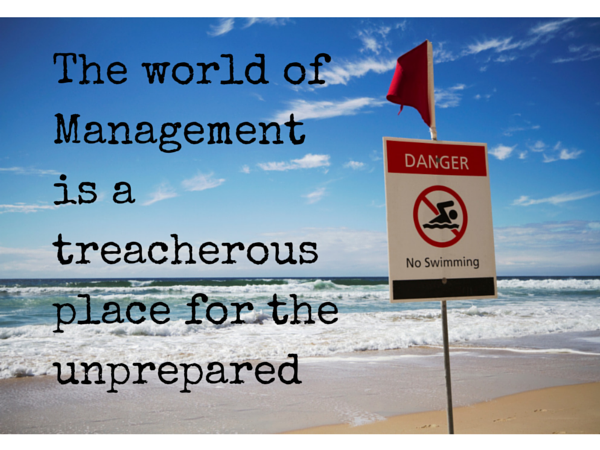
by Brad Clarke | Oct 30, 2014 | Business growth, Leadership, Performance Improvement
There is much to be gained by business willing to move out of ‘survival mode’. Triple Bottom Line thinking can be the catalyst. “The Vibe” I love the idea of the Triple Bottom Line; Economic, Social and Environmental sustainability. It feels right and in the immortal words of Dennis Denuto, “it’s the vibe of the thing.” Where has it gone? Why don’t we hear about it anymore? Has it been replaced by some other, cooler, corporate jargon? “Survival Instincts” Perhaps a decade of political fear-mongering and post-apocalyptic GFC shock has left the business world in a highly conservative mind frame? Its understandable. Survival is an instinct that sits at the very core of our being and when our businesses are threatened, we hunker down for the fight. Sometimes the higher level thinking of Maslow needs to go out the door, or at least, be put aside so that those primal needs are met and survival is assured. “No Monster in the Closet” What if those primal instincts are wrong? After all, they evolved as a response to the potential of being eaten by a dinosaur or something above us on the food chain, not necessarily to protect our corporate assets whilst we wait for the economic storm to pass. Perhaps we should take a different approach and revisit our friend the Triple Bottom Line? “Spaceship Earth” In 2010, whilst participating in the Leaders for Geelong program, I had the absolute pleasure of meeting Dr. Peter Ellyard. Peter is a Futurist and Global Economics expert having spent two decades as OECD Senior Consultant and three decades...

by Brad Clarke | Oct 24, 2014 | Leadership Training, Management, Performance Improvement
NEWSLFASH: Role Ambiguity responsible for KPI crash; Expert says “Role Clarity the Answer” A familiar tale Ok, take a breath. Its ok. Yes, we’re 80% through our performance cycle and only at 25% of our performance expectations, yet, geez, I know we can still make it, can’t we? I’ll just work a little harder this week, squeeze in a few more hours, pull out my A-Grade motivational speech and really get the team buzzing. We’ll make it, yep, for sure…. I hope! Sounds familiar right? Reality Its a really common story inside the world of Management. Of course we need to accept that today (and probably for the duration of our professional careers) we will operate within a world of performance metrics and matrices. We also understand that these measurements give quantifiable evidence of our ability to do what we are supposed to do as Managers: achieve results through the efforts of other people. So then, if these measurements are so important, if they genuinely measure our level of skill (a question for another day) and we can stand, hand on heart and profess our devotion to achieving the benchmarks, why are we all so bloody overwhelmed? Essentially we study the data related to performance after-the-fact and then obtain feedback, put in place performance improvement measures and move on to the next cycle, only to be in a similar predicament down the road. Something seems wrong, wouldn’t you agree? A simple question: Do you know WHY your KPI’s are what they are? Do you really know? Really? A way forward My experience working with Middle Managers is that they...

by Brad Clarke | Oct 23, 2014 | Human Resource Management, Management, Performance Improvement
Selecting the right people to participate in a problem solving exercise is critical. What type of person would you choose? Thinking about Thinking Roughly speaking, there are two types of thinkers in the world; the ‘Linear Thinker’ and the ‘Lateral Thinker’. The Linear Thinker: operates along a continuum, following a series of steps towards a logical solution. In business, we might describe this as the vertical thinker and the default style. Logic and fact take precedence in a process where each new piece of information can create or extend a linear pattern; a predictable outcome based on technically sound foundations. The Lateral Thinker: operates on a less formulaic approach, taking into consideration all items that relate to the topic at hand without applying a hierarchy or weighted system of importance. Creativity, extrapolation and emotion are utilised to allow freedom of thought and exploration of non-conventional ideas. Unpredictable, sometimes unforeseen outcomes can be derived from operating outside the square. No Right or Wrong I would not argue against either style of thinking in an appropriate setting. Both have a clear place and purpose and will, given the right environment, apply their craft and deliver the results required (all other variable being present). The question does arise as to who should have a seat at the table in a problem solving process? Instinctively, and perhaps somewhat conservatively, I would go for the logical, Linear thinker. It seems to make sense. Even though I am personally more of a lateral thinker, I know what I am going to get from the other side of the fence and I know that the solution that is...

by Brad Clarke | Oct 11, 2014 | Human Resource Management, recruitment
Generation Y & Beyond – a new recruitment paradigm Change In mid 2000 I was invited to lead a scientific research project studying arachnids at altitude in the Nepalese Himalaya. This was an opportunity that I had been waiting for having directed my tertiary studies and vocation into Biology Sciences for about a decade. The experience had a profound impact on me in so many ways but, of most significance, was the opportunity to work with a group of young people participating in the Millennium Expedition For Young Australians, under the patronage of then Federal Democrats leader Natasha Stott Despoja. During eight weeks in the shadows of the world’s highest peaks, I made a decision to change career and become a Youth Worker, inspired by the young people I lived with in the Himalaya. Some 15 years later, I think I’ve come to understand young people quite well. I’ve sat with some of our most marginalised and damaged kids; I’ve also had time with some of the most determined and dedicated. New World Unquestionably the journey of adolescence has held similar challenges for each young person throughout the generations. It is just as certain that this current generation of young people face challenges and opportunities on an unprecedented scale. As a young person, my world extended little more than a few residential blocks from my home. As far as I was willing to peddle my BMX was the outer perimeter of my turf. Only a decade or two later and kids live in a global community bound only by their access to an iPad or other such device. The arrival of...

by Brad Clarke | Oct 10, 2014 | Human Resource Management, Management, Performance Improvement
Management training and skill development is a priority for newly appointed Managers The right stuff If I were to describe myself in three words, I would say “caring, intelligent, fair”, qualities I believe, that are important to be a successful Manager. As a proficient, possibly even outstanding technician in my chosen vocation, I was identified as a candidate for promotion and eventually my opportunity arrived. A car and accompanying car park privileges, a nice pay rise and a set of shiny keys established in me a mandate of the Manager – to get things done “the right way”. Management is more than commitment to the cause Over a period of six years, I did, with those three traits (care, intelligence and fairness) commit myself fully to the tasks and people I oversaw. I can, hand on heart, say that I had the best interests of my staff at the forefront of (most) decisions and actions I was responsible for. No doubt. I can just as easily declare my time in the role as a rollercoaster of uncertainty and unfortunately, one of limited success. I made some horrible mistakes; mistakes I still ponder (now that I know and understand the reasons they were so bad). For sure I had the deck stacked against me when I naively signed my new contract; a culture of underperformance in a highly competitive, possibly even inviable contract. Yet still I now understand clearly that I did myself, my staff and my organisation no favours and for that I suffered great personal anguish, cost several people their jobs and left a major hole in budgets over...








Recent Comments